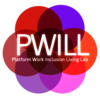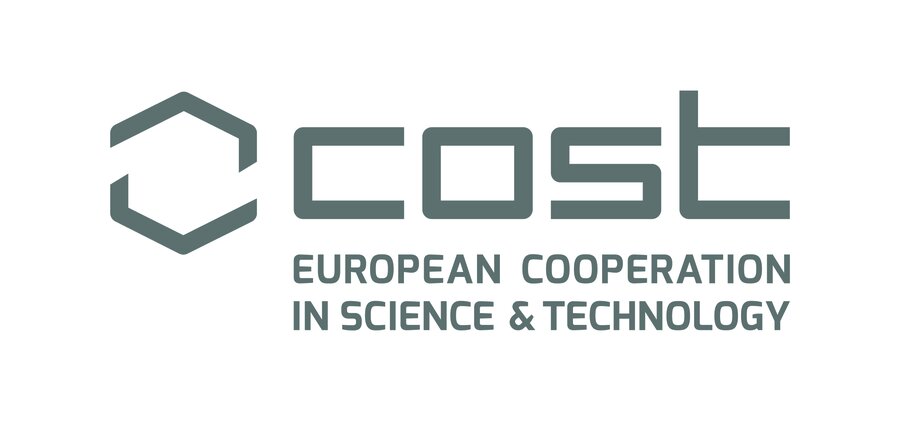P-WILL COST Conference 2025




Platform Work in South East Europe – Intersectionality, Feminist Futures, and the Gold Economy
Host: Platform Work Inclusion Living Lab (P-WILL) and University of Shkodra “Luigj Gurakuqi”
Location: University of Shkodra “Luigj Gurakuqi’”, Shkoder, Albania
Address: Sheshi Dugajte e Reja, Rruga Jeronim de Rada, Shkoder, 4001, Albania
Event Format: Working Group (WG) Meetings + Conference
Date: May 22–23, 2025
About the Conference
The Platform Work Inclusion Living Lab (P-WILL) COST Action (CA21118), in partnership with the University of Shkodra "Luigj Gurakuqi," is organising the International Conference titled “Platform Work in South East Europe – Intersectionality, Feminist Futures, and the Gold Economy” on 23 May 2025 in Shkoder, Albania.
Digital transformation and the rapid proliferation of platform work are fundamentally reshaping labour markets, economic relations, and social dynamics across South East Europe (SEE). Driven by artificial intelligence (AI), algorithmic management, and data commodification, platform economies promise flexibility and economic inclusion but often perpetuate existing inequalities, precarious working conditions, and weak regulatory environments. In South East Europe, these challenges are intensified by the region’s complex history of post-communist transitions, persistent socio-economic inequalities, gendered labour markets, and inadequate legal protections for workers.
This conference invites critical, empirically informed discussions about the multifaceted impacts of digitalisation, artificial intelligence, and algorithmic management on workers' rights, social justice, and economic inclusion. Drawing upon feminist political economy, intersectionality, and a nuanced understanding of platform capitalism, the event seeks to unpack the intersectional dynamics of gender, race, class, and migration within South East Europe’s evolving platform economies. It also explores alternative scenarios for the future of work, emphasising inclusive and equitable platform models that align technological innovation with social justice and sustainability—the core vision of the emerging "Gold Economy." The Gold Economy concept was originally developed by the European Training Foundation (ETF), and this conference aims to foster new ways of thinking about technology-enabled work. The Gold Economy represents a value-driven, technology-enhanced future of work where innovation is consciously directed towards empowering communities, ensuring fair labour practices, and achieving environmental and social sustainability. Through this lens, the conference seeks not only to critically assess current conditions but also to collectively imagine and co-create inclusive, feminist, and equitable alternatives to existing platform models, ultimately aligning technological progress with the broader goals of social justice and sustainability.
Rooted in feminist critiques of technology and political economy, the conference aims to challenge dominant narratives of technological determinism by centring the lived experiences and agency of traditionally excluded communities (TECs), including women, migrants, and racialised minorities. Participants will explore how existing platform labour models can perpetuate or disrupt gender and intersectional inequalities and consider how interdisciplinary collaboration and co-creation between academia, policy-makers, civil society, and industry can foster transformative outcomes.
The conference will specifically emphasise action-oriented, intersectional feminist approaches, exploring strategies for resistance, collective organisation, policy advocacy, and ethical platform design. The goal is not only to illuminate existing inequalities but also to collectively envision and develop pathways toward fairer, more inclusive, and socially responsible futures for platform work in South East Europe.
Working Group (WG) Meetings
Date: May 22, 2025, Time: 09:00 – 14:00
WG3 (Digital Technologies & Data Models): AI governance, bias reduction, and inclusive design in platform economies.
WG4 (Mobilisation, Regulation & Policy Strategies): Labour rights, policy frameworks, and TEC inclusion in digital economies.
Date: May 22, 2025, Time: 14:30 – 17:00
Joint WG3 & WG4 Strategy Session: Drafting policy briefs and identifying synergies for sustainable platform regulation.
Call for papers
Conference “Platform Work in South East Europe – Intersectionality, Feminist Futures, and the Gold Economy”
Date: May 23, 2025, Time: 09:00 – 15:00, Location: University of Shkodra, Albania
Digital Transformations & the Future of Platform Work
- Historical trajectories of labour-market transformations and digitalisation in South East Europe.
- Informality, precarious labour, and emerging digital regimes in post-communist platform economies.
- Artificial Intelligence, algorithmic management, and the restructuring of employment practices and workforce dynamics
Feminist Political Economy, Algorithmic Management & Inequality
- Gendered dimensions of platform labour, including care work, unpaid labour, and economic vulnerability.
- Platform work through intersectional lenses of race, class, and migration: Who benefits, and who is marginalised?
- Algorithmic governance, bias, and surveillance: Issues of transparency, discrimination, and fairness in digital workplaces.
The State, Regulation & Labour Rights in the Digital Economy
- Labour laws, unionisation, and governance frameworks addressing the specific challenges of platform work.
- Assessing the potential of the European AI Act to safeguard platform workers’ rights and conditions.
- Aligning platform governance frameworks in South East Europe with the EU Pillar of Social Rights and Sustainable Development Goals (SDGs).
Worker Mobilisation and New Forms of Resistanc
- Grassroots mobilisation, trade-union strategies, and collective action in response to digital labour exploitation in South East Europe.
- Policy innovation and best practices for enhancing labour protections and rights for platform workers.
- Co-creating inclusive scenarios: strategies for transnational advocacy and alternative models of fair platform economies.
Women & TEC Civil Society Organisations: Advocating for Digital Labour Justice
- The role of women’s rights groups and technology-enabled care (TEC) civil society organisations in shaping inclusive and just platform economies.
- Feminist strategies in collective bargaining, advocacy, and policy formulation for digital economies.
- Addressing systemic gender discrimination, digital exclusion, and economic precarity through collective, intersectional approaches.
Plenary Sessions and Keynotes
- Feminist Political Economy & Platform Work
- Keynote exploring how gender, class, race, and migration intersect in platform work.
- Critical perspectives on the feminisation and informalisation of gig work in South East Europe (SEE).
Algorithmic Justice & AI Governance in Platform Work
- Keynote discussion on algorithmic bias, AI-driven discrimination, and worker surveillance.
- Perspectives on platform governance, digital labour rights, and ethical AI regulations.
Post-Communist Labour Transitions & TECs
- Keynote analysing how post-communist labour market transformations impact platform work.
- The role of labour rights, informal economies, and migration policies in shaping digital labour markets.
Networking & Collaboration Opportunities
- Policymaker-Researcher-Industry Roundtable
- Strengthening policy impact and advocacy efforts for equitable platform work regulations.
- Bridging gaps between academia, government, and private sector stakeholders.
P-WILL Stakeholder Forum
- Reviewing and advancing WG3 & WG4 research outputs.
- Establishing regional and international partnerships for future research and policy advocacy.
Important Dates:
Deadline for submission of Abstracts | 6 April 2025 |
Notification of acceptance of Abstracts | 30 April 2025 |
Full paper submission for Proceedings | 15 May 2025 |
Conference date | 23 May 2025 |
Place | Location: University of Shkodra “Luigj Gurakuqi’”, Shkoder, Albania |
Participants must submit their abstracts, following the Guidelines, to the address: elvisa.drishti@unishk.edu.al
Conference language: English
Publication & Dissemination
Selected papers will be considered for publication in an edited volume or a special journal issue focusing on Feminist Political Economy and Platform Work in South East Europe. Additionally, policy briefs will be developed and shared with EU and regional policymakers, influencing future directions in digital labour governance.
This event is based upon work from COST Action < Platform Work Inclusion Living Lab, CA21118>, supported by COST (European Cooperation in Science and Technology).
COST (European Cooperation in Science and Technology) is a funding agency for research and innovation networks. Our Actions help connect research initiatives across Europe and enable scientists to grow their ideas by sharing them with their peers. This boosts their research, career and innovation.
